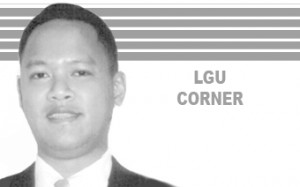 One of the powers that local chief executives exercise is the power to close down illegal business establishments.
One of the powers that local chief executives exercise is the power to close down illegal business establishments.
This is the mandate of the local government code, and in several instances, the charter of a city.
When business establishments operate illegally, or fail to comply with conditions upon which their existence to operate is based, the mayor can step in ensure laws are faithfully observed.
In section 445 of the local government code, Republic Act No. 7160, mayors are granted powers to “issue licenses and permits and suspend or revoke the same for any violation of the condition upon which said licenses or permits had been issued, pursuant to law or ordinance.â€
The mayor has the power to inspect and investigate private commercial establishments for any violation of the conditions of their licenses and permits.
This power of the mayor has been sustained and recognized by the Supreme Court.
In Alfredo Lim versus Court of Appeals the Supreme Court laid the guidelines in explaining the nature of the powers of mayors to close down businesses.
The Court said: “It is clear that the power of the mayor to issue business licenses and permits necessarily includes the corollary power to suspend, revoke or even refuse to issue the same.
“However, the power to suspend or revoke these licenses and permits is expressly premised on the violation of the conditions of these permits and licenses.
“The laws specifically refer to the violation of the condition(s) on which the licenses and permits were issued.
Similarly, the power to refuse to issue such licenses and permits is premised on non-compliance with the prerequisites for the issuance of such licenses and permits.
The mayor must observe due process in exercising these powers, which means that the mayor must give the applicant or licensee notice and opportunity to be heard.â€
Likewise a local government unit have the power to order demolition of illegally constructed establishments.
This is because, in the exercise of police power and the general welfare clause, property rights of individuals may be subjected to restraints and burdens in order to fulfill the objectives of the government.
Otherwise stated, the government may enact legislation that may interfere with personal liberty, property, lawful businesses and occupations to promote the general welfare.
One such piece of legislation is the local government code
The law authorizes city and municipal governments, acting through their local chief executives, to issue demolition orders.
Under existing laws, the office of the mayor is given powers not only relative to its function as the executive official of the town.
It has also been endowed with authority to hear issues involving property rights of individuals and to come out with an effective order or resolution thereon.
Under the local government code, mayors are empowered to order the closure and removal of illegally constructed establishments for failing to secure the necessary permits. (By Atty. Jay I. Dejaresco)
